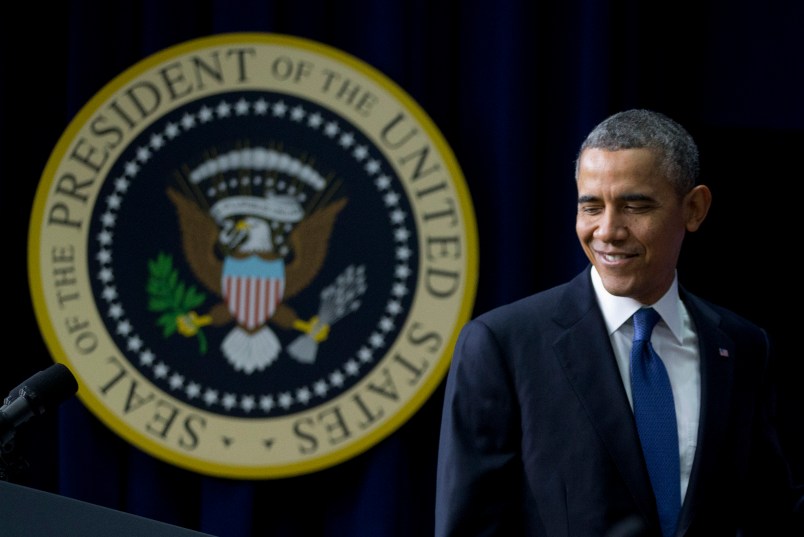Obamacare lives. After nearly three months of Murphy’s Law in action, after everything that could go wrong did, it’s still got a pulse.
Monday, Dec. 23, two and a half months after HealthCare.gov crashed and burned during its launch, the law has cleared a major hurdle: the deadline for people to sign up for coverage that starts in January. With the passage of that marker, hundreds of thousands — probably millions — of people have officially enrolled in health coverage through the law.
That’s a big win for the White House, even though the road seems to have been paved with every worst-case scenario. With each passing day from here on out, there should be fewer and fewer opportunities for unforced errors that could undermine President Barack Obama’s signature legislative achievement.
Administration officials acknowledge that the biggest fumbles of the last two months — HealthCare.gov’s unacceptably glitchy launch and the wave of health plan cancellations because of the law’s 2014 reforms — should have been better anticipated and planned for. The mismanagement behind the scenes of the federal website has been thoroughly documented and, as TPM has reported, the cancellations were a long expected byproduct of the law that the White House was still ill-prepared to address.
Those were twin disasters that threatened the country’s confidence in the entire law. HealthCare.gov was its public face, the first conscious interaction that many Americans had with Obamacare. The cancellations were a public relations fiasco, violating Obama’s most famous statement about the law — “If you like your health plan, you can keep it” — and earning him PolitiFact’s Lie of the Year. Support for the policy and the president has dipped to historic lows. A new CNN poll Monday continue to show record-low support for the Affordable Care Act.
That’s left the administration in clean-up duty over the last 90 days. The laborious two-month slog to fix the website. The ad hoc administrative ‘fix’ for those with a canceled health plan. Last week’s announcement that the administration would then exempt those people from Obamacare’s individual mandate.
“It feels like they’re fighting fires, not governing and implementing,” Caroline Pearson, vice president for Avalere Health, an independent consulting firm, told TPM. “It’s been much more reacting and maneuvering after the fact.”
Even supporters of the law acknowledge that the Obama administration has largely been playing defense and reacting to crises rather than setting a clear agenda for Obamacare’s most critical months. Last week’s unexpected change to the individual mandate found the administration “once again … in a tough spot,” Jonathan Gruber, an MIT economist who helped craft the law, told TPM.
But he also asserted that, in implementing a fundamental overhaul of the country’s health care system, the White House is in an unprecedented position where it’s difficult to prepare for every eventuality.
“This is such a new area that it is hard to know what the next problem is going to be,” he said.
The good news: The administration is almost through the minefield. HealthCare.gov is fixed. Last Thursday’s mandate exemption effectively ends the canceled-plan kerfuffle from a policy perspective. More people enrolling in coverage means more positive stories for the White House to highlight to rebut months of bad press. The slow but steady rebound has allowed the White House to return to promoting the law after effectively delaying that critical outreach for two months.
There is still room for error, of course. Insurance companies are still receiving some bad data. Many people still need to pay their first month’s premium for their coverage to actually take effect. Some are likely to find that their current doctor isn’t in the network of the new coverage that they purchased — which the GOP will surely seize as another broken promise by Obama. Administration officials are anticipating a new round of potential hiccups as people begin to use their new coverage when the first wave of plans takes effect Jan. 1.
But the big obstacles seem to be surmounted as the first major deadline arrives. For supporters of the law, the worst is likely in the past. The president himself said Friday that the Obamacare rollout had been his biggest mistake of 2013, but expressed confidence that the law would thrive in the long run.
“This is a messy process. When you try to do something this big affecting this many people, it’s going to be hard,” Obama said. “But that doesn’t negate the fact that a year from now, or two years from now, when we look back, we’re going to be able to say even more people have health insurance who didn’t have before.”






